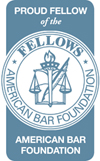Guttman, Buschner & Brooks PLLC is pleased to announce that founding partner, Justin Brooks, has been selected as a Rising Star by SuperLawyers.com in the category Top Rated Business Litigation Attorney. Mr. Brooks primarily represents relators in qui tam litigation under the False Claims Act and other federal and state statutes and corporate clients in a wide variety of complex commercial and employment litigation. He also provides employment and compliance counseling to companies, represents institutional investors in shareholder derivative and corporate governance litigation, and represents employees in employment litigation of all types. Learn more about Justin Brooks here.
Traci L. Buschner
 Traci L Buschner
Traci L Buschner
Founding Partner
(202) 800-3003
tbuschner@gbblegal.com
Practice Areas
Government Experience
State Prosecutor
Education
University of Louisville
Miami University
Admissions
The District of Columbia
The Commonwealth of Kentucky
The U.S. District Court for the
– District of Columbia
– District of Maryland
United States Court of Appeals for the District of Columbia Circuit
Boards/Memberships
Trial Lawyers Association of Metropolitan Washington, D.C., President (2024-2025)
Miami University Alumni Pre-Law Advisory Board (Chair, 2022-2024)
American Bar Foundation, Fellow
American Association for Justice (AAJ), member
Fellow of the American Bar Foundation

loading …
Dr. Caroline Poplin
 Dr. Caroline Poplin
Dr. Caroline Poplin
Of Counsel & Medical Director
Practice Areas
Whistleblower and False Claims
High Impact Litigation
Government Experience
United States Food and Drug Administration
Senior United States Environmental Protection Agency
Atomic Energy Commission
Education
Georgetown University Hospital Internal Medicine residency program (1994)
University of Rochester School of Medicine (M.D., 1991)
Yale Law School (J.D., 1975)
Bryn Mawr College, magna cum laude with Honors (1969)
Admissions
District of Columbia
Medical Licenses
Maryland
Virginia
Boards/Memberships
Fellow, American College of Physicians
Member, AMA
Member, National Academy of Social Insurance
NIH Institutional Review Board (NINDS, Eye Institute) 2006-2013
Elizabeth H. Shofner
 Elizabeth H. Shofner
Elizabeth H. Shofner
Of Counsel
(202) 800-3001
lshofner@gbblegal.com
Practice Areas
Whistleblower and False Claims
High Impact Litigation
Corporate Governance
Government Experience
Law Clerk, Hon. John M. Walker, Jr., Second Circuit U.S. Court of Appeals
Education
New York University School of Law, New York (J.D. magna cum laude, 1997)
Hunter College, New York (Masters, Psychology, 1988)
Washington University, St. Louis (A.B., English Literature & Psychology, 1984)
Admissions
New York, SDNY, EDNY, Fourth Circuit
Boards/Memberships
Article Editor, New York University Law Review
DE SUPREME COURT RULES ON STATUTE OF LIMITATIONS FOR BAD FAITH CLAIMS AGAINST INSURANCE COMPANY
Delaware Supreme Court rules the three-year statute of limitations for an insurance bad-faith claim accrues when an excess judgment becomes final and is no longer appealable.
OVERVIEW
On March 4, 2016, the Delaware Supreme Court addressed when bad-faith-failure-to-settle claims accrue in the case of Connelly v. State Farm Mutual Automobile Insur. Co., Del. Supr., No. 426, 2015 (Mar. 4. 2016). In a decision authored by Chief Justice Leo Strine, the Court held that the three-year SOL accrues when an excess judgment becomes final and no longer appealable.
REASONING
The Court began its analysis with basic principles. It first applied the condition of “good faith and fair dealing” imposed upon all Delaware contracts. The Court explained that in the insurance context, the implied covenant historically “included a duty to settle claims within policy limits where recovery in excess of those limits is substantially likely.” The Court also drew upon reasoning from jurisprudence in the area of indemnification of directors and officers. In that context, indemnity claims do not accrue until there is a final judgment. The Court reasoned that insurance claims are also a type of indemnity because the obligation to cover an indemnified party’s costs only arises if and when a final and non-appealable excess judgment to a third-party claim arises. Applying Delaware General Corporation Law (“DGCL”) Section 145, the Court determined that in non-advancement indemnity claims, the “corporation’s obligation to indemnify its fiduciary, employee, or agent, is also conditioned on that party meeting the standard of conduct.” It further held that similarities between insurance and traditional D&O indemnity claims warrant application of the same policies of “litigative efficiency and preventing waste of judicial resources that have led Delaware courts to determine that an indemnity claim accrues when there is a final judgment.”
IMPLICATIONS
The case is particularly interesting for its application of director and officer indemnity jurisprudence outside its typical context and because many litigators will benefit from knowing when the SOL begins to run for a claim against an insurance company for bad faith failure to settle within policy limits. Although arguing for a different rule, State Farm accepted the decision “as fair,” telling the Delaware Law Weekly through counsel that “[i]t’s fine, as long as we know what it is.” The decision does provide sound guidance and needed certainty moving forward and establishes precedent for other jurisdictions to adopt.
CONTACTS
If you have any questions or would like more information on the issues discussed in this LawFlash, please contact Justin Brooks at jbrooks@gbblegal.com.
GBB will be opening its Delaware office on April 1, 2016 to better serve institutional investors and corporate clients.
